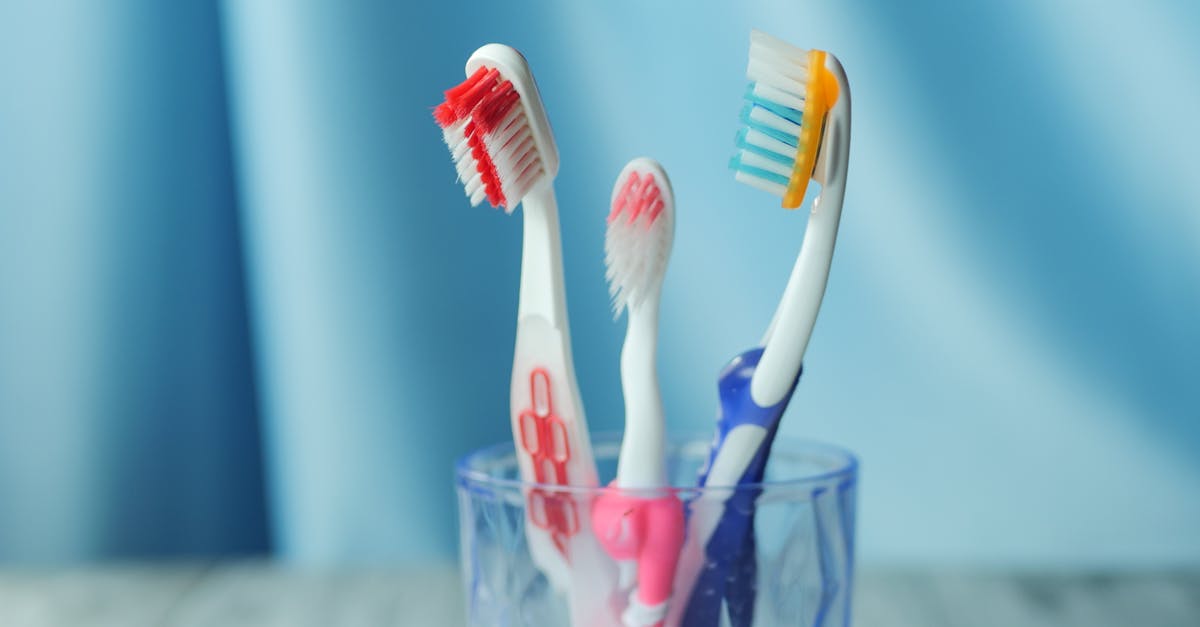Welcome to Your Guide on Natural Dental Care!
Are you looking for effective ways to enhance the health and appearance of your teeth and gums without relying heavily on chemical products? You’re in the right place! How to Strengthen and Clean Your Teeth and Gums Naturally is your go-to resource for unlocking the secrets to a brighter, healthier smile using time-tested home remedies. Today, more than ever, individuals are turning towards natural solutions for their dental care, seeking both safety and efficacy.
In this comprehensive guide, we’ll explore the Top 10 Home Remedies that have been proven to fortify dental health and promote a radiant smile. From the comfort of your home, you can implement these strategies easily and see noticeable results. Whether it’s the foods you eat or simple daily practices, each step you take can contribute significantly to your dental hygiene.
Dental health is not just about aesthetics—it’s crucial for overall health too. Poor oral hygiene can lead to a multitude of problems beyond just cavities and gum disease, including heart disease, diabetes, and other serious health issues. This makes it all the more important to maintain a clean and healthy mouth. With our guidance, you’ll discover natural ways to care for your teeth and gums that are not only effective but also align with a holistic approach to health.
Let’s dive into these natural remedies and start your journey towards a stunning, healthy smile that lights up the room!

Key Takeaways
- Oil Pulling: Using coconut or sesame oil for oil pulling can help reduce bacteria, promote gum health, and whiten teeth naturally.
- Baking Soda: Brushing with baking soda occasionally helps remove plaque and whiten teeth due to its mild abrasive properties.
- Herbal Mouthwashes: Rinsing with a natural mouthwash containing aloe vera, tea tree oil, or chamomile can soothe gums and reduce inflammation.
- Proper Nutrition: Eating a diet rich in vitamins A, C, D, and calcium supports dental health and strengthens tooth enamel.
- Green Tea: Regularly drinking green tea offers anti-inflammatory properties that can protect against gum disease and bad breath.
- Avoid Sugars and Acids: Minimizing intake of sugary and acidic foods prevents tooth decay and enamel erosion, maintaining a healthier smile.
- Regular Dental Hygiene: Maintaining a routine of brushing twice a day and flossing daily is essential for removing dental plaque and preventing oral diseases.
Introduction to Natural Dental Care
Maintaining optimal dental health is crucial, not only for a radiant smile but also for overall well-being. Common dental issues like cavities, gingivitis, and plaque can lead to more severe health problems if left untreated. These ailments stem largely from bacteria buildup and poor oral hygiene practices.
Impact of Dental Health on Overall Well-being
Dental health is a window to your general health. Issues in your mouth can affect the rest of your body. Poor oral hygiene has been linked to various health issues, including diabetes, heart disease, and stroke. Thus, keeping your teeth and gums healthy is vital.
Common Dental Issues
- Cavities: Small holes in your teeth caused by acid-producing bacteria.
- Gingivitis: Inflammation of the gums, often a precursor to more serious gum diseases.
- Plaque: A sticky film of bacteria that forms on teeth and gums, leading to decay and gum irritation.
Natural Remedies vs. Traditional Dental Treatments
While traditional dental treatments are effective, they often involve chemicals that some may prefer to avoid. Natural remedies offer a gentler approach, utilizing ingredients like baking soda, coconut oil, and essential oils which provide a holistic way to maintain oral health without the harshness of chemical treatments.
Embracing natural dental care involves integrating these simple, effective practices into your daily routine, promising a healthier smile and improved overall health.
The Role of Diet in Dental Health
Maintaining a healthy smile goes far beyond brushing and flossing. What you eat plays a pivotal role in keeping your teeth and gums strong and resilient. Incorporating certain foods into your diet can act as natural toothbrushes, while others provide essential nutrients that promote oral health.
Foods That Promote Dental Health
Crunchy fruits and vegetables, such as apples, carrots, and celery, are excellent for dental health. These foods help clean teeth by removing plaque as you chew. They also stimulate saliva production, which neutralizes the acids produced by bacteria in your mouth and washes away food particles.
Importance of Calcium, Phosphorus, and Vitamins in Dental Health
Calcium and phosphorus are vital for maintaining strong teeth and bones. Dairy products like milk, cheese, and yogurt are rich in calcium and also contain casein, which helps neutralize oral acids. Leafy greens and almonds are great non-dairy sources. Vitamins A, C, and D are crucial for oral health; they help maintain healthy gums and aid in the absorption of calcium.
Foods to Avoid That Harm Teeth and Gums
Sugary snacks and acidic foods can be detrimental to dental health. Sugar fosters bacterial growth, leading to cavities, while acidic foods like lemons, grapefruits, and sodas can erode tooth enamel. It’s advisable to minimize these and instead choose snacks that strengthen dental health.
Eating wisely not only benefits your oral health but your overall well-being, making it a critical component of a radiant smile and a healthy lifestyle.
Daily Oral Hygiene Routines
Maintaining a sparkling smile begins with the daily oral hygiene practices you adopt. Brushing your teeth effectively is the cornerstone of dental health. Utilize a soft-bristled brush and fluoride toothpaste, moving the brush in gentle, circular motions to remove plaque and prevent gum erosion. This technique ensures comprehensive cleaning without causing damage to your enamel.
Benefits of Flossing Daily
Flossing should not be overlooked as it plays a critical role in your oral hygiene routine by removing food particles and plaque from between your teeth where a toothbrush can’t reach. Daily flossing helps to prevent gum disease and tooth decay, contributing significantly to overall mouth health.
Why Tongue Scraping is Beneficial for Oral Health
Tongue scraping is an often-underrated practice that supports oral hygiene by removing bacteria build-up on the tongue’s surface. This not only enhances your breath but also improves the overall oral flora, reducing the risk of plaque and gingivitis.
Embracing these daily oral hygiene routines will not only improve your dental health but also boost your confidence with a naturally radiant smile. Remember, consistency is key in achieving the best results. So, make sure these practices become non-negotiable parts of your daily routine.
Using Natural Substances as Toothpaste and Mouthwash Alternatives
Exploring natural ways to maintain oral hygiene can be both effective and gentle on your teeth and gums. Here’s how you can use everyday items from your pantry or bathroom cabinet to boost your dental health.
Baking Soda for a Brighter Smile
Baking soda, known scientifically as sodium bicarbonate, is a powerhouse when it comes to oral care. Its mild abrasive properties help remove surface stains from your teeth, making it an excellent choice for a natural tooth whitener. Simply mix a small amount of baking soda with water to create a paste and brush as you would with traditional toothpaste. The alkaline nature of baking soda also helps in neutralizing the acids produced by bacterial plaque, reducing the risk of tooth decay and gum disease.
Coconut Oil: The Natural Antiseptic
Oil pulling, an ancient practice where one swishes oil in the mouth, is gaining popularity as a dental detox method. Coconut oil is particularly favored for this due to its lauric acid content, which has natural antiseptic properties that can reduce harmful bacteria in the mouth. For effective results, swish a tablespoon of coconut oil in your mouth for 15-20 minutes daily before brushing. This can help in reducing plaque buildup, freshening breath, and strengthening gums.
Hydrogen Peroxide for Oral Care
Hydrogen peroxide is often used as a disinfectant, but it can also be a part of your oral hygiene routine. When used correctly, it helps in killing bacteria, healing gums, and whitening teeth. To use hydrogen peroxide safely, dilute it with equal parts water (ensure it’s a 3% solution suitable for oral use) and use it as a mouthwash. It’s essential to rinse your mouth thoroughly with water afterward to ensure no residue remains.
Integrating these natural substances into your daily oral care routine can lead to healthier teeth and gums, contributing to a radiant smile without the harsh chemicals found in some commercial products.
Herbs for Gum Health and Tooth Strength
Neem: A Natural Powerhouse for Oral Care
Neem has been revered as a cornerstone of dental health in traditional medicine. Its antibacterial properties are exceptional for combating gum disease, reducing plaque buildup, and freshening breath. Chewing on neem sticks can strengthen the teeth by providing a natural form of fluoride and other essential minerals necessary for healthy enamel.
Aloe Vera: Soothing and Healing Your Gums
Aloe Vera is not just for skincare; its benefits extend into oral health as well. Known for its soothing properties, Aloe Vera gel can be applied directly to the gums to reduce inflammation and heal gum infections. Many people find relief from gum irritation simply by applying a small amount of Aloe Vera gel where discomfort is present, promoting faster healing and healthier gums.
Green Tea: A Refreshing Route to Dental Health
Rich in catechins, green tea helps to fight bacteria and reduce inflammation in the mouth. Regularly drinking green tea or using it as a mouthwash can significantly lower the risk of developing plaque, which is often the precursor to more serious gum diseases. The antioxidants found in green tea not only protect your gums but also bolster overall tooth strength.
Introducing these herbs into your daily dental care routine can lead to noticeable improvements in both gum health and tooth strength. Embrace the natural benefits of neem, Aloe Vera, and green tea to keep your smile radiant and healthy.
Essential Oils for Dental Care
Integrating essential oils into your dental hygiene regimen can transform your oral health. These potent botanical extracts offer natural solutions for maintaining a radiant smile. Here, we explore three key oils: peppermint, tea tree, and clove, each bringing unique benefits to your dental care routine.
Peppermint Oil for Fresh Breath and Antibacterial Properties
Peppermint oil is highly favored for its invigorating fresh scent and taste, which makes it a popular choice in toothpaste and mouthwashes. Beyond its pleasant aroma, peppermint oil possesses strong antibacterial properties that help combat harmful bacteria in the mouth. This not only freshens breath but also contributes to reducing plaque buildup, offering a natural way to enhance oral cleanliness.
Tea Tree Oil: Benefits and Precautions for Oral Use
Tea tree oil is renowned for its powerful antiseptic properties, making it effective in killing off bacteria and soothing inflamed gums. However, it is crucial to use tea tree oil with caution. Always dilute it properly as undiluted oil can be toxic if swallowed. Opt for a water-based solution or a few drops in your toothpaste to safely reap its benefits.
How Clove Oil Can Alleviate Tooth and Gum Pain
Clove oil has been used for centuries as a natural remedy for dental pain. It contains eugenol, a natural anesthetic, and antiseptic compound that helps to numb pain and reduce infections. Applying a small amount of diluted clove oil to a sore area can provide temporary relief from toothaches and gum pain. This makes clove oil a must-have in any natural dental care toolkit.
By incorporating these essential oils into your daily oral hygiene practices, you can support your dental health naturally while enjoying the added benefits of their aromatic properties.
Homemade Remedies for Strengthening Teeth and Gums
Recipe for Homemade Remineralizing Toothpaste
Creating a remineralizing toothpaste at home is easier than you might think. You’ll need the following ingredients:
- 4 tablespoons of calcium powder to provide the necessary minerals for your teeth.
- 1 tablespoon of xylitol powder, which helps fight bacteria and enhances taste.
- 2 tablespoons of coconut oil, known for its antibacterial properties.
- 1 tablespoon of baking soda, which gently polishes teeth and neutralizes acids.
- 20 drops of peppermint essential oil for fresh breath.
Mix these ingredients together until you achieve a paste-like consistency. Use this toothpaste daily to help strengthen enamel and combat decay.
Natural Mouthwash Recipes for Healthy Gums
Natural mouthwashes can be effective in preventing gum disease. Here’s a simple recipe:
- 1 cup of distilled water
- 2 teaspoons of baking soda
- 2 drops of tea tree oil
- 2 drops of peppermint oil
Mix these ingredients in a bottle and shake well before each use. Swish in your mouth for a minute twice daily to reduce bacteria and promote gum health.
Simple Salt Water Rinse for Inflammation Reduction
A salt water rinse is a time-tested remedy for reducing gum inflammation and healing mouth sores. Dissolve 1 teaspoon of salt in a cup of warm water. Rinse your mouth with this solution for 30 seconds after brushing your teeth. This simple practice not only reduces inflammation but also cleanses the mouth of bacteria and food particles.
These natural remedies are easy to prepare and use, making them perfect additions to your dental care routine. They help maintain dental health effectively, ensuring a radiant smile without harsh chemicals.
Preventive Tips to Avoid Common Dental Issues
Maintaining a radiant smile goes beyond daily brushing and flossing. To prevent common dental problems such as cavities, gum disease, and enamel wear, consider these proactive tips:
Regular Dental Check-Ups
Consistent visits to your dentist are crucial for maintaining optimal oral health. Professionals recommend scheduling a check-up every six months. These visits allow for early detection and treatment of issues before they escalate, saving you from complicated procedures down the line.
The Impact of Quitting Smoking on Oral Health
Smoking is notorious for its detrimental effects on oral hygiene. It increases the risk of periodontal diseases, oral cancer, and tooth discoloration. Quitting smoking can significantly improve your oral health, leading to healthier gums and a decrease in plaque and tartar buildup.
Limiting Alcohol and Its Effects on Oral Hygiene
Alcohol consumption can have adverse effects on your oral health. It dries out the mouth, reducing saliva which is essential in washing away food particles and neutralizing acids produced by bacteria in the mouth. Moderating alcohol intake helps maintain a healthy balance of saliva, protecting your teeth and gums from decay and disease.
By integrating these preventive measures into your routine, you not only protect your dental health but also enhance your overall well-being. Remember, a healthy smile is a beautiful smile!
Lifestyle Adjustments for Better Oral Health
Maintaining your oral health is not just about brushing and flossing daily but also involves integral lifestyle changes that can significantly impact the health of your teeth and gums.
Understanding Stress and Its Impact on Oral Health
Chronic stress often leads to teeth grinding, known medically as bruxism. This unconscious habit can cause severe damage to your tooth enamel, lead to jaw pain, and even change the appearance of your face. Managing stress through techniques like meditation, yoga, or even regular counseling can help reduce this involuntary response and protect your oral health.
The Benefits of Exercise for Gum Health
Regular physical activity doesn’t just strengthen your body; it also increases blood circulation, which is vital for healthy gums. Enhanced blood flow ensures that your gum tissues receive the necessary nutrients and oxygen, helping to fight off potential gum diseases like gingivitis or periodontitis. Activities such as brisk walking or cycling can be particularly beneficial.
The Importance of Staying Hydrated
Adequate hydration is crucial for promoting saliva production, which naturally cleanses the mouth by removing particles that may lead to decay. Drinking plenty of water throughout the day helps maintain optimal saliva flow, thus protecting your teeth and gums from bacterial buildups. Aim for at least eight glasses of water a day to keep your mouth moist and clean.
By adopting these lifestyle adjustments, you not only enhance your overall health but ensure your smile remains bright and healthy. Remember, small changes can make a significant impact!
Encouraging Consistent Natural Dental Care Practices
Understanding the value of natural remedies in maintaining dental health is crucial. These methods not only help in strengthening teeth and gums but also ensure a holistic approach to oral hygiene. Integrating simple, natural solutions like rinsing with saltwater or applying turmeric paste can significantly enhance your dental health.
Maintain a Routine Dental Hygiene Practice
Consistency is key when it comes to dental care. Establishing a daily routine that includes brushing with fluoride-free toothpaste, flossing, and using a herbal mouthwash can prevent numerous dental issues. It’s advisable to brush at least twice a day and floss regularly to remove food particles and plaque that can lead to gum disease and tooth decay.
Share Your Experiences and Seek Professional Advice
We invite you to share your own experiences with natural dental care practices. Whether it’s a homemade remedy that worked wonders or a routine that keeps your smile bright, your stories can inspire others to adopt healthier dental habits. Additionally, consulting with a dental professional can provide personalized advice tailored to your specific needs. They can offer insights on how to effectively combine natural remedies with traditional dental care.
Embracing these natural and consistent practices not only promotes oral health but also contributes to overall well-being. Start today, and keep your smile radiant and healthy!
Conclusion
Embracing natural dental care is not just a trend; it’s a sustainable approach to achieving a radiant smile and robust oral health. Throughout this guide, we’ve explored how a nutritious diet, daily oral hygiene routines, and natural substitutes for commercial toothpaste and mouthwash can significantly enhance dental health. The use of herbs and essential oils has been highlighted as effective in strengthening teeth and gums, offering a gentle yet powerful means to support overall mouth wellness.
Incorporating homemade remedies into your dental care regime can be both rewarding and effective. Preventative tips, such as adjusting lifestyle habits and maintaining consistent natural dental care practices, are vital in avoiding common dental issues. As we’ve seen, these strategies not only promote stronger teeth and healthier gums but also contribute to long-term health benefits that go beyond oral care.
By adopting the practices discussed, including regular use of natural substances and herbs, you can enjoy a healthier, more vibrant smile. Remember, the journey to optimal dental health is continuous, and integrating these natural remedies into your daily routine will ensure lasting benefits for your teeth and gums.




















